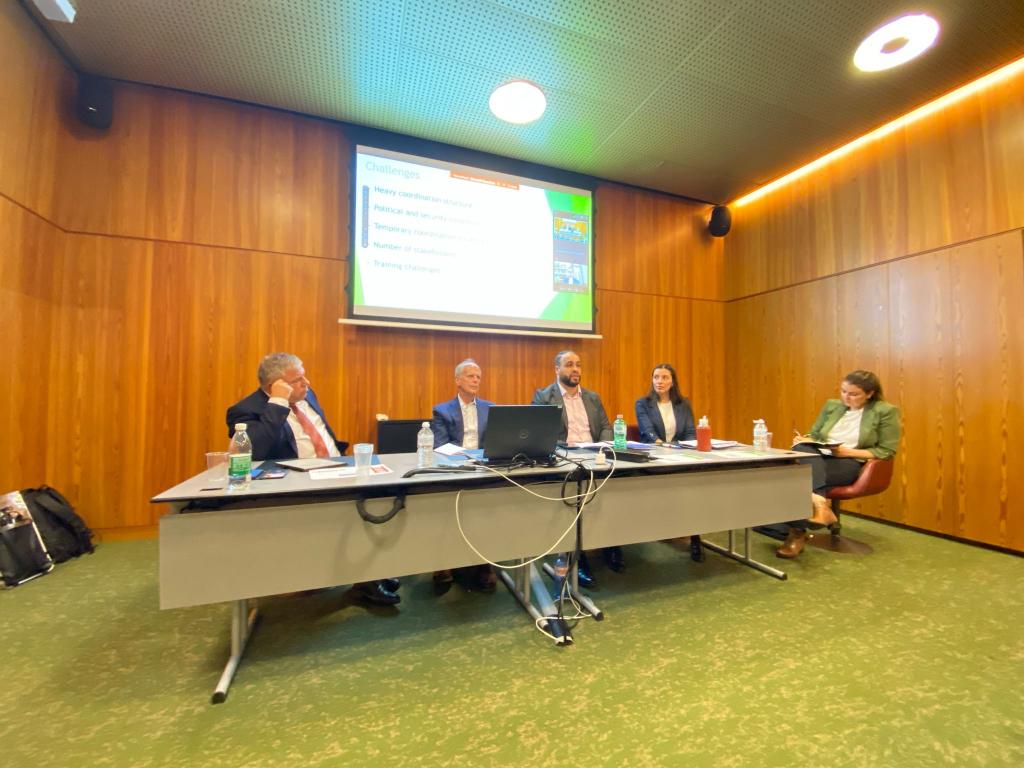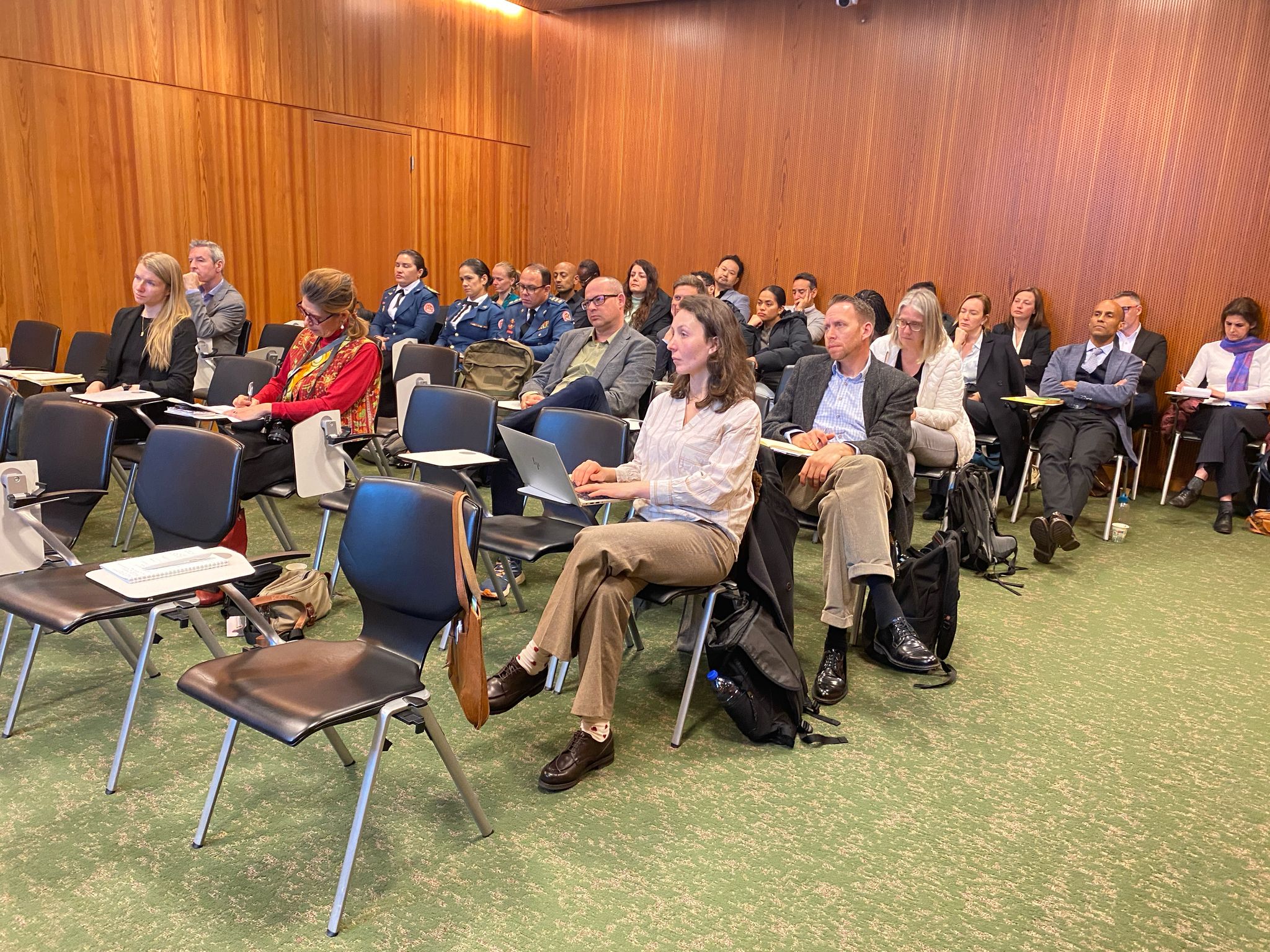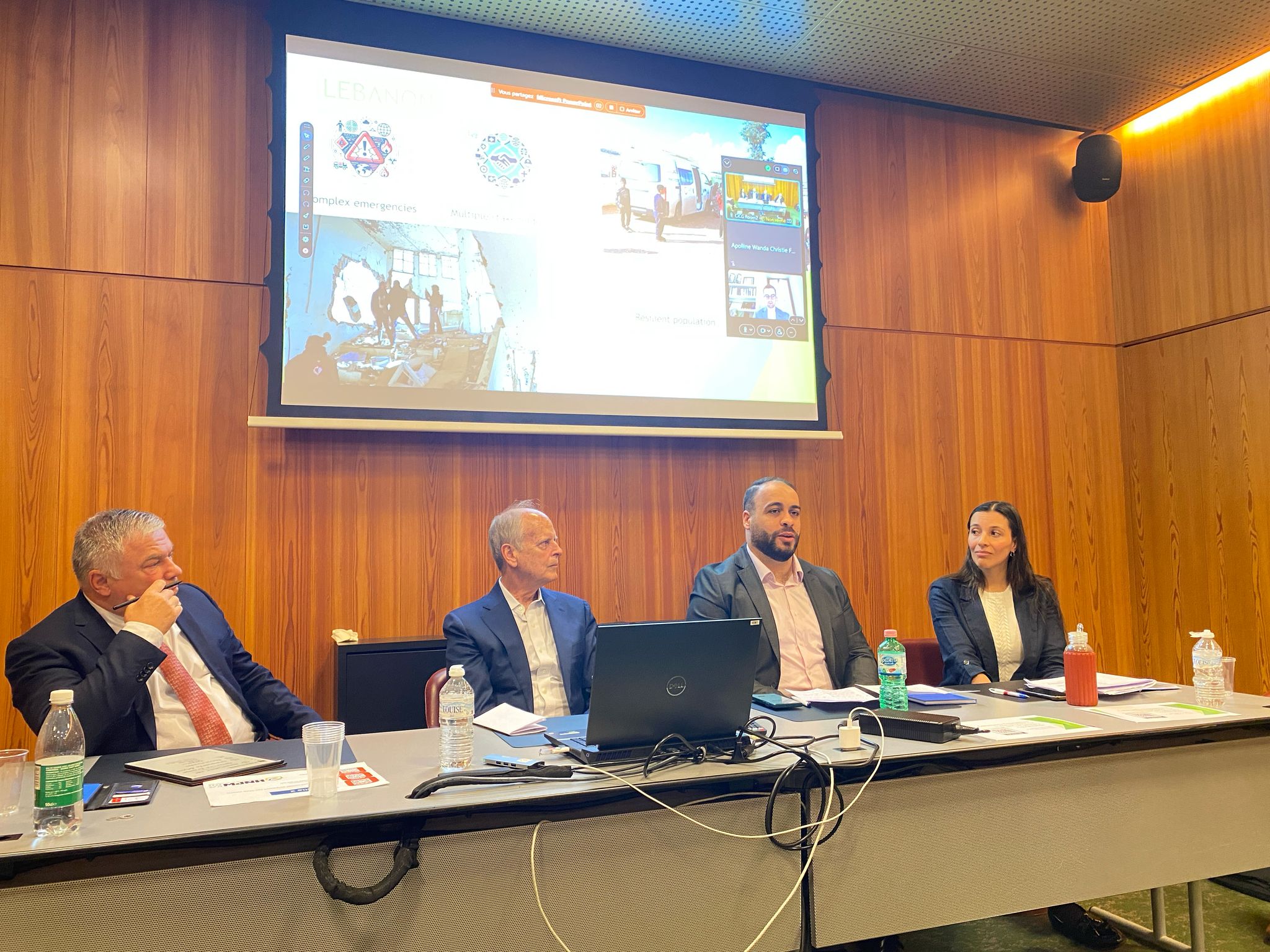The Centre on Conflict, Development and Peacebuilding (CCDP) was pleased to take part in the 2025 edition of the Humanitarian Networks and Partnerships Weeks (HNPW)—the annual event that brings together a wide range of humanitarian actors, including UN agencies, NGOs, the Red Cross and Red Crescent Movement, academia, military representatives, private sector initiatives, and Member States. Hosted by the United Nations Office for the Coordination of Humanitarian Affairs (OCHA) and the Swiss Agency for Development and Cooperation, HNPW offers a vital platform for cross-sectoral dialogue, innovation, and collaboration in crisis preparedness and response.
On 27 March 2025, CCDP participated in a panel discussion focused on the importance of community engagement in humanitarian action. Speakers emphasised critical dimensions such as accountability to affected populations, two-way communication and feedback loops, mutual capacity sharing, conflict sensitivity, and the "do no harm" principle. A participatory approach was underscored as key to making humanitarian efforts more effective and inclusive.
The session was organised by CCDP Research Associate Masayo Kondo Rossier and moderated by Eliza Urwin, Head of Research at CCDP, who opened the discussion by outlining its objectives and the pressing need to strengthen community engagement in humanitarian civil-military coordination. Five panelists then shared insights on the challenges, best practices, and case studies from diverse contexts.
Among them, Robert Watkins, CCDP Research Associate and former Deputy Special Representative of the Secretary-General (DSRSG) for Afghanistan, drew from his experiences in Afghanistan. He spoke about the significant disconnect between international actors and local communities—highlighting corruption and trust deficits as major barriers to meaningful engagement. Emilian Berutti, a doctoral researcher at CCDP, presented the case of Mindanao, Philippines, focusing on the humanitarian aftermath of the Marawi City siege and the enduring complexities in the region.
Additional contributions included reflections from panelists working in Colombia and Lebanon, offering comparative insights into the challenges and opportunities of humanitarian civil-military coordination in diverse contexts.
In the interactive portion of the session, Eliza Urwin invited participants to reflect on key questions:
- What are the most common challenges in engaging communities in humanitarian civil-military coordination?
- What specific tools or resources would enhance this training?
- Which training methods are most effective for field practitioners?
This dialogue served to inform and support a training toolkit under development aiming to support humanitarians in improving civil-military coordination in Mindanao, Philippines, and Niger. It was also inspired by the discussions at the Humanitarian Networks and Partnerships Weeks (HNPW) 2024.
To learn more about the session and access the event summary, visit:
Humanitarian Networks and Partnerships Weeks (HNPW) 2025 – Geneva Environment Network




